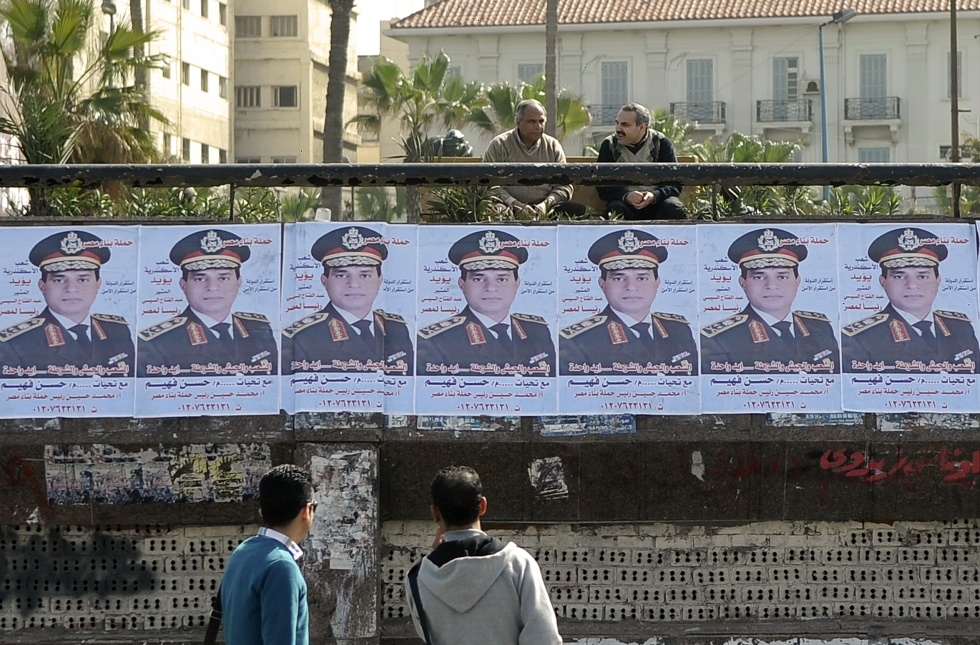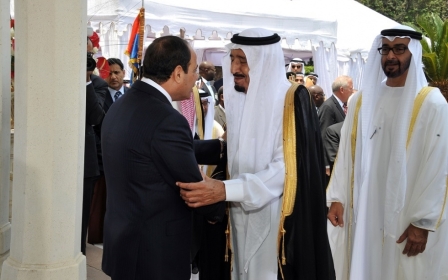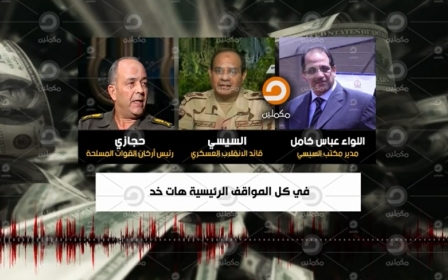Fresh leaks allege Sisi meddled in Libya last year

Fresh leaks, claiming to feature close allies of Egyptian President Abdel Fattah al-Sisi speaking about political interference in neighbouring Libya were aired on Thursday evening.
The leak, the latest in a line of potentially incriminating recordings to emerge in recent months, was released by Libyan television channel Panorama.
It claims to reveal conversations in which the Egyptian presidential office was coordinating closely with Libyan officials in a bid to stop the extension of the General National Congress (GNC) in February last year.
In the leak, a voice that allegedly belongs to the head of Sisi’s office, Lieutenant Abbas Kamel, was recorded, supposedly, speaking to the Egyptian president and advising him to work with Ahmed Gaddaf al-Dam. While the state-allied press has denied the previous leaks, Sisi's office has never fully denied them, leading to widespread speculation that they might be genuine.
Dam, a close ally and cousin of former leader Muammar Gaddafi, was Tripoli's special envoy to Cairo for many years and left Libya for Egypt shortly after the 2011 uprising against Gaddafi.
In the leak, the voice said to belong to Kamel was heard calling Dam an important partner in Libya, although Dam was arrested in Egypt in 2013 during the time of Mohammed Morsi, Egypt’s first democratically elected president, who hailed from the Muslim Brotherhood but was ousted by Sisi in July 2013.
"What's special about him [Dam] is that he understands what's happening on the ground...and to my knowledge he knows how to deal with the public," Kamel told Sisi over the telephone.
Libya’s GNC was democratically elected in 2012 and originally tasked with appointing a constitutional assembly, although the assembly was later elected directly. Tensions over the GNC grew last year, with increasing calls for it to step down and for fresh elections to be held.
While the GNC eventually gave into pressure and called for fresh elections that took place in June, it has since refused to recognise the rival parliament, known as the House of Representatives, with many GNC members reconvening and setting up their own government in Tripoli over the summer.
The country has remained split, with the two rival parliaments in Tripoli and Tobruk, as well as the plethora of militias and army groups that support them, claiming legitimacy. Egypt has long supported the Tobruk-based government, possibly even providing supplies and intelligence.
Earlier this week, Cairo carried out a string of bombing raids aimed at taking out Islamic State militants who have managed to gain a foothold in the country and who recently executed 21 Egyptian Christians on a beach front in the Libyan city of Derna.
Middle East Eye propose une couverture et une analyse indépendantes et incomparables du Moyen-Orient, de l’Afrique du Nord et d’autres régions du monde. Pour en savoir plus sur la reprise de ce contenu et les frais qui s’appliquent, veuillez remplir ce formulaire [en anglais]. Pour en savoir plus sur MEE, cliquez ici [en anglais].




